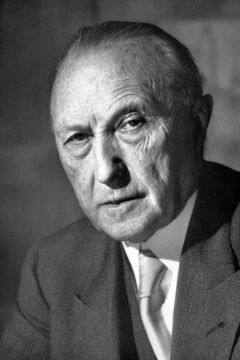Wolfgang Streeck at the European Journal of Social Theory:

Accessing and explicating the complexities of the collective subconscious that underlies a culture requires a hermeneutic skill and a richness of concepts and examples that is not at my disposal. I have nothing to add to Heidrun Friese’s insightful psycho-analysis of the Tätervolk that wants to draw a Schlussstrich by insisting that it doesn’t want to draw a Schlussstrich, offering reparation, Wiedergutmachung, for what cannot be repaired, hoping to be forgiven the unforgivable by declaring it unforgivable. I will instead focus on a simpler subject, one that lends itself, I hope, to be treated with the less sophisticated toolkit of the political scientist: not the depths of culture but the heights of politics, of government, of state, in particular the contingencies and constraints faced by a German state which had chosen to be the successor state of the Drittes Reich, in its dual relationship with its international context and its domestic society.
When the Federal Republic was founded by the three Western Allies in 1949, its first Chancellor, Konrad Adenauer, had to govern with what the unconditional surrender had left of the Nazi killing machine. There was hardly anybody else, on both the conservative and the social-democratic side, who knew how to run a ministry, a secret service, a police corps, a court of justice, or injustice as the case might have been.
More here.
Enjoying the content on 3QD? Help keep us going by donating now.
